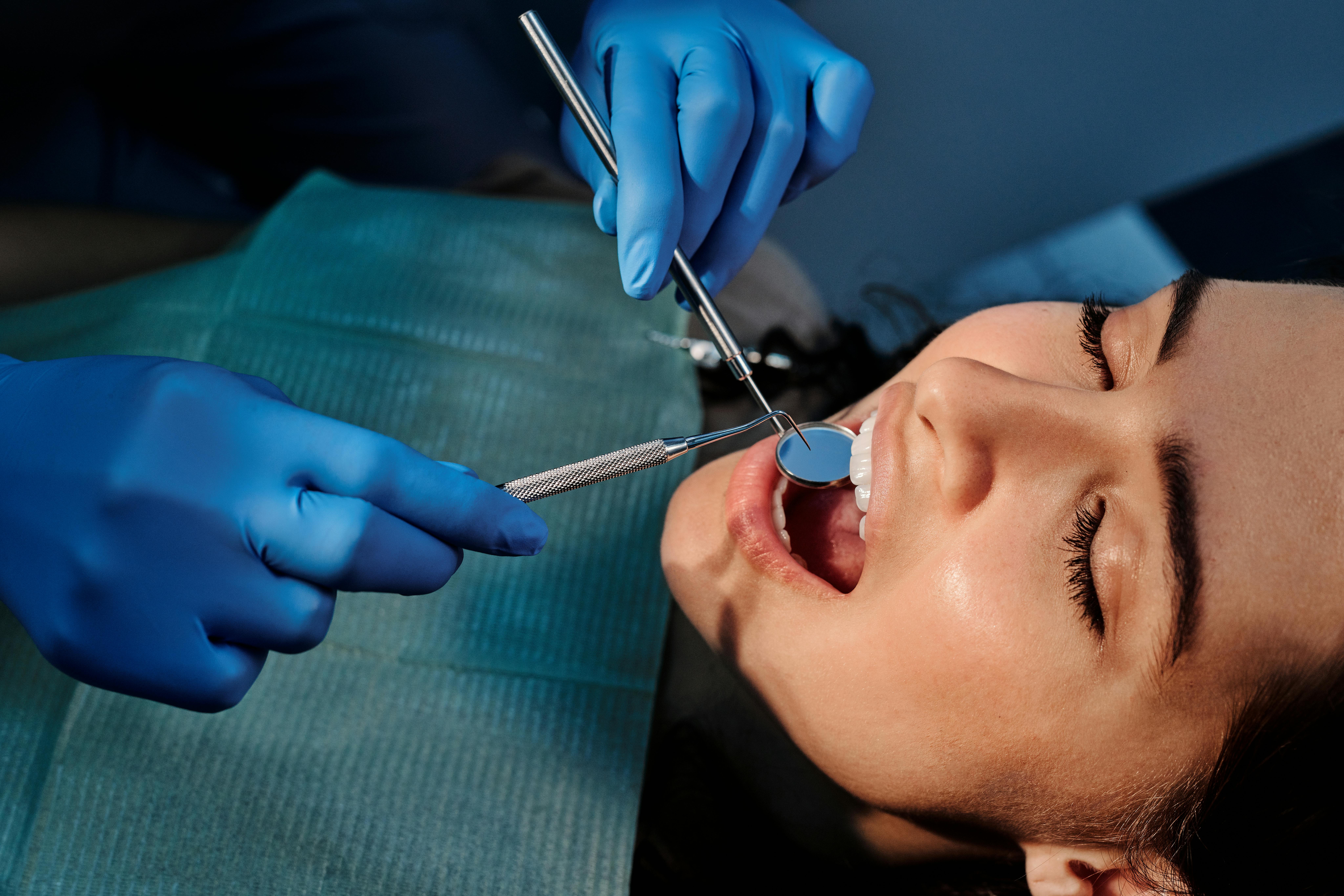
Types of Preventative Dentistry
Preventative dentistry focuses on proactive measures to maintain oral health and prevent dental problems. Regular dental check-ups and cleanings every six months are essential, allowing dentists in Mt Pleasant, TX, to assess oral health, detect early signs of issues like cavities and gum disease, and intervene promptly. Daily oral hygiene practices such as brushing with a fluoride toothpaste at least twice daily, flossing to remove plaque and debris between teeth, and using mouthwash help prevent plaque buildup and bacterial growth. The diet also plays a critical role; limiting sugary and acidic foods reduces the risk of tooth decay while consuming tooth-strengthening nutrients like calcium and vitamin D, which support enamel health. Dental sealants and fluoride treatments provide additional protection by shielding teeth from decay and strengthening enamel. By integrating these practices and working closely with dental professionals, individuals can effectively minimize the need for extensive dental treatments and maintain a healthy smile for life.
Importance of Regular Dental Check-ups
Early Detection of Dental Issues
Regular dental check-ups in Mt Pleasant, TX, allow dentiststo identify early signs of cavities, gum disease, oral cancer, and other dental problems. Early detection enables prompt treatment, preventing the progression of conditions that could lead to more extensive dental procedures.
Professional Dental Cleanings
Professional cleanings remove plaque and tartar buildup that cannot be effectively removed by brushing and flossing alone. This reduces the risk of tooth decay and gum disease, preserving the health of teeth and gums.
Preventative Treatments
Dentists can administer preventative treatments such as fluoride applications and dental sealants to strengthen enamel, protect teeth from decay, and prevent cavities.
Education and Guidance
Dental visits allow patients to receive personalized oral hygiene instructions, dietary advice, and tips for maintaining good oral health at home. Education empowers individuals to take proactive steps in caring for their teeth and gums.
Monitoring Oral Health Changes
Regular dental exams allow dentists to monitor changes in oral health over time. This includes assessing bite alignment, jaw health, and the condition of dental prosthetics. Early detection of oral health changes allows for timely intervention and management. Contact us today to learn more.
Cost-Effectiveness
Preventative dentistry helps individuals avoid costly and invasive dental treatments that may be necessary if dental problems are left untreated. By investing in regular preventative care, individuals can save money on future dental procedures.
Overall Health Benefits
Good oral health is linked to overall health and well-being. Preventative dentistrypreserves teeth and gums and contributes to better systemic health, reducing the risk of certain systemic conditions related to poor oral health.
Types of Preventative Dentistry
Regular Dental Check-ups
Routine dental exams, typically recommended every six months, are fundamental in preventative dentistry. These appointments allow dentists to assess oral health, detect early signs of dental issues like cavities, gum disease, and oral cancer, and intervene promptly to prevent further complications.
Benefits:
- Early detection of dental issues such as cavities, gum disease, and oral cancer.
- Timely intervention to prevent progression and complications.
- Assessment of overall oral health, including teeth, gums, and oral tissues.
- Monitoring changes in oral health over time.
- Personalized oral hygiene instructions and dietary advice for maintaining good oral health at home.
- Education on proper brushing and flossing techniques.
- Cost-effective approach to prevent costly dental treatments in the future.
Professional Dental Cleanings
Dental cleanings performed by dental hygienists are crucial for removing plaque and tartar buildup that brushing and flossing alone cannot effectively eliminate. This reduces the risk of tooth decay and gum disease, maintaining healthy teeth and gums.
Benefits:
- Removal of plaque and tartar buildup that cannot be effectively removed by brushing and flossing alone.
- Reduction of the risk of tooth decay and gum disease.
- Maintenance of healthy teeth and gums.
- Detection of early signs of dental issues during the cleaning process.
- Polishing of teeth to remove surface stains and improve aesthetic appearance.
- Assessment of oral hygiene practices and recommendations for improvement.
Dental Sealants
Dental sealants are thin, protective coatings applied to the chewing surfaces of molars and premolars. They act as a barrier, preventing bacteria and food particles from accumulating in the deep grooves of teeth and reducing the risk of cavities.
Benefits:
- Sealants act as a barrier to prevent bacteria and food particles from accumulating in the deep grooves of teeth.
- Reduce the risk of cavities and tooth decay, especially in vulnerable areas that are difficult to clean with regular brushing.
- Long-lasting protection against decay, typically lasting several years with proper care.
- Quick and painless application process, often completed during a routine dental visit.
Fluoride Treatments
Fluoride is a mineral that helps strengthen tooth enamel and make teeth more resistant to decay. Fluoride treatments, often in gels, foams, or varnishes applied to the teeth, can help prevent cavities and reverse the early stages of tooth decay.
Benefits:
- Strengthening of tooth enamel to make teeth more resistant to decay and cavities.
- Reversal of early stages of tooth decay by remineralizing weakened enamel.
- Protection of teeth against acid attacks from plaque bacteria and sugary foods.
- Reduction of sensitivity in teeth by blocking exposed dentin tubules.
- A safe and painless procedure suitable for patients of all ages.
- Integration into routine dental visits for optimal preventive care.
- Enhancement of oral health alongside regular brushing and flossing habits.
By prioritizing preventative dentistry, individuals can maintain a healthy smile, preserve their natural teeth, and enjoy improved overall health and quality of life. Visit MT. Pleasant Family Dental at 614 S Jefferson Ave APT 3, Mt Pleasant, TX 75455, or call (903) 345-6065 to schedule your appointment to safeguard your smile for years.













0 comments